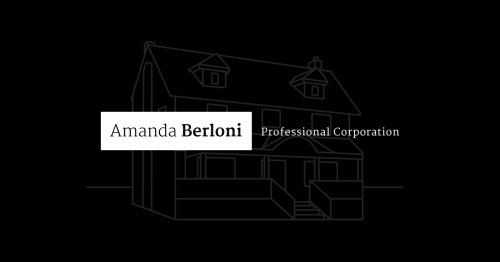Best Franchising Lawyers in Greater Sudbury
Share your needs with us, get contacted by law firms.
Free. Takes 2 min.
List of the best lawyers in Greater Sudbury, Canada
About Franchising Law in Greater Sudbury, Canada
Franchising is a popular business model throughout Canada, including in Greater Sudbury, Ontario. It allows individuals (franchisees) to operate businesses using the branding, systems, and support of an established company (the franchisor). Greater Sudbury, as a significant urban and economic center in Northern Ontario, offers various opportunities in retail, food service, hospitality, and service industries through franchising. The franchising sector is governed by a mix of federal and provincial laws that seek to balance the interests of franchisors and franchisees, promoting transparency, fair dealings, and business growth.
Why You May Need a Lawyer
Franchising involves significant legal and financial commitments. Here are some common situations where legal advice is crucial:
- Reviewing or drafting franchise agreements to understand obligations and rights
- Negotiating franchise terms or resolving disputes with franchisors
- Ensuring compliance with Ontario’s franchise disclosure regulations
- Assessing the viability and risks of buying or selling a franchise business
- Protecting intellectual property and understanding territory rights
- Assisting with lease, employment, and supply contracts related to the franchise
- Representing clients in mediation, arbitration, or litigation arising from franchise relationships
Local Laws Overview
In Ontario, including Greater Sudbury, franchising is primarily regulated by the Arthur Wishart Act (Franchise Disclosure), 2000. This law governs many aspects of franchising relationships, primarily focusing on:
- Mandatory Franchise Disclosure: Franchisors must provide a comprehensive disclosure document to potential franchisees at least 14 days before any agreement is signed or payment is made.
- Fair Dealing: Both parties are required to act in good faith and adhere to fair dealing standards.
- Right to Associate: Franchisees have the right to form or join associations without fear of retaliation.
- Remedies for Non-compliance: Failure by franchisors to disclose can permit franchisees to rescind the agreement and seek damages.
Other relevant laws in Sudbury might include those relating to employment, commercial leases, intellectual property, and consumer protections, all of which often overlap with franchising.
Frequently Asked Questions
What is a franchise agreement?
A franchise agreement is a legally binding contract outlining the rights and responsibilities of both the franchisor and franchisee, covering operations, payments, branding, territory, and more.
Does Ontario require franchisors to make any disclosures?
Yes. Under the Arthur Wishart Act, franchisors must provide a disclosure document with detailed information, including financial statements, fees, litigation history, and other material facts, at least 14 days before an agreement is executed.
Can I negotiate the terms of a franchise agreement?
Some terms may be negotiable, but many franchisors offer standard-form agreements. Engaging a franchise lawyer can help you understand negotiable aspects and potential risks.
What are the risks of not getting legal advice before signing a franchise agreement?
Without proper legal guidance, you may inadvertently agree to terms that are disadvantageous, expose yourself to significant liabilities, or overlook your rights as a franchisee under Ontario law.
What happens if the franchisor did not provide proper disclosure?
If disclosure rules are not followed, franchisees may have the right to rescind the agreement within prescribed periods or claim damages from the franchisor.
Is franchising regulated differently in Greater Sudbury compared to the rest of Ontario?
No. Franchise regulation is provincial, so the rules in Greater Sudbury are the same as anywhere else in Ontario. However, local business licensing, zoning, and municipal regulations may also apply.
What expenses should I expect when starting a franchise?
Upfront costs typically include franchise fees, lease or property expenses, inventory, and legal costs. Ongoing expenses can include royalties, marketing contributions, staffing, and supplies.
Do I need to register my franchise with a government agency in Ontario?
There is no requirement to register your franchise itself, but other business registrations or licenses (such as business name registration and municipal permits) may be necessary.
Can a franchisor terminate my agreement without cause?
Termination rights are governed by the agreement and the law. The Arthur Wishart Act enforces good faith dealings, and arbitrary or unfair termination could be legally challenged.
How can I resolve a dispute with my franchisor?
Most franchise agreements include dispute resolution mechanisms such as negotiation, mediation, or arbitration. Legal advice is beneficial in understanding your rights and strategies for resolution.
Additional Resources
If you need more information or assistance regarding franchising in Greater Sudbury, consider these resources:
- The Canadian Franchise Association (CFA): Offers guidance, events, and information for both franchisors and franchisees.
- Ontario Ministry of Public and Business Service Delivery: Oversees business law in Ontario, including the Arthur Wishart Act.
- Sudbury & District Chamber of Commerce: Local business support, networking, and educational resources.
- Small Business Enterprise Centre (Sudbury): Support for entrepreneurs, including those interested in franchising.
- Legal Aid Ontario: For qualifying individuals needing legal guidance.
Next Steps
If you are considering entering into a franchise, or if you are already involved in a franchising arrangement and require legal advice in Greater Sudbury, here’s how you can proceed:
- Gather all relevant documents, such as disclosure materials, draft agreements, financial projections, and correspondence.
- Identify your goals and any particular concerns or questions you have about the franchising process.
- Contact a lawyer in Greater Sudbury with experience in franchise law. Make sure to choose someone familiar with both Ontario’s franchise legislation and local business regulations.
- Prepare for your meeting by writing down your questions and ensuring you understand the key terms and timelines involved.
- Ask about legal fees and services provided so there are no surprises during the process.
- Consider reaching out to one of the local or provincial support organizations for additional help or networking opportunities.
Taking proactive steps and consulting a qualified legal professional will help protect your interests and give you confidence as you embark on your franchising journey in Greater Sudbury.
Lawzana helps you find the best lawyers and law firms in Greater Sudbury through a curated and pre-screened list of qualified legal professionals. Our platform offers rankings and detailed profiles of attorneys and law firms, allowing you to compare based on practice areas, including Franchising, experience, and client feedback.
Each profile includes a description of the firm's areas of practice, client reviews, team members and partners, year of establishment, spoken languages, office locations, contact information, social media presence, and any published articles or resources. Most firms on our platform speak English and are experienced in both local and international legal matters.
Get a quote from top-rated law firms in Greater Sudbury, Canada — quickly, securely, and without unnecessary hassle.
Disclaimer:
The information provided on this page is for general informational purposes only and does not constitute legal advice. While we strive to ensure the accuracy and relevance of the content, legal information may change over time, and interpretations of the law can vary. You should always consult with a qualified legal professional for advice specific to your situation.
We disclaim all liability for actions taken or not taken based on the content of this page. If you believe any information is incorrect or outdated, please contact us, and we will review and update it where appropriate.











